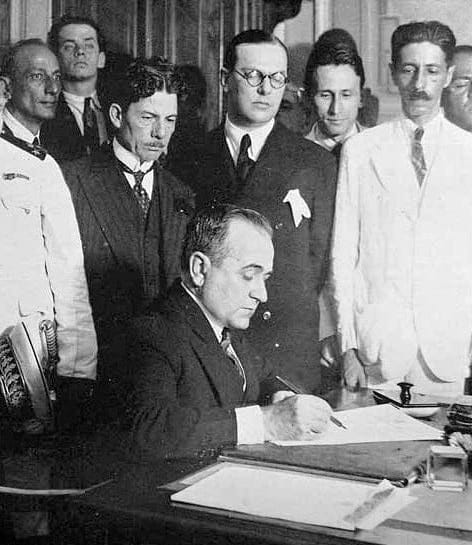A Third Path: Corporatism in Brazil and Portugal
By Melissa Teixeira
Princeton University Press, 384 pages, $39.95
Thirty years ago, not long after the fall of the Berlin Wall and the liberalization of everything, Slavoj Žižek observed that “it seems easier to imagine the ‘end of the world’ than a far more modest change in the mode of production.” In more recent years, however, imagining the end of liberal capitalism has grown easier. The Great Recession, the stagnation of globalization, growing inequality, the Brexit and Trump elections, the West’s undeclared war against Russia, and the return of nationalism have put changes in the relations of production back on the agenda.
Historian Melissa Teixeira’s new book, A Third Path: Corporatism in Brazil & Portugal, is a worthy contribution to this imagining of a social order beyond liberal capitalism. From the early 1930s down to 1945 in Brazil and 1974 in Portugal, the state in these two countries abolished laissez-faire and replaced it with a corporatist system of interest representation that built a technocratically managed mixed economy with the stated goals of development, order, and justice. Their costs and benefits were stark. During the Estado Novo, Portugal’s economy grew to 60 percent of British GDP, up from 20 percent, and enjoyed massive increases in literacy. Its population also faced dictatorship, bureaucracy, and grinding colonial wars. Under its own shorter-lived iteration of corporatist state, Brazil underwent rapid industrialization, while also suffering authoritarian rule and political repression.
